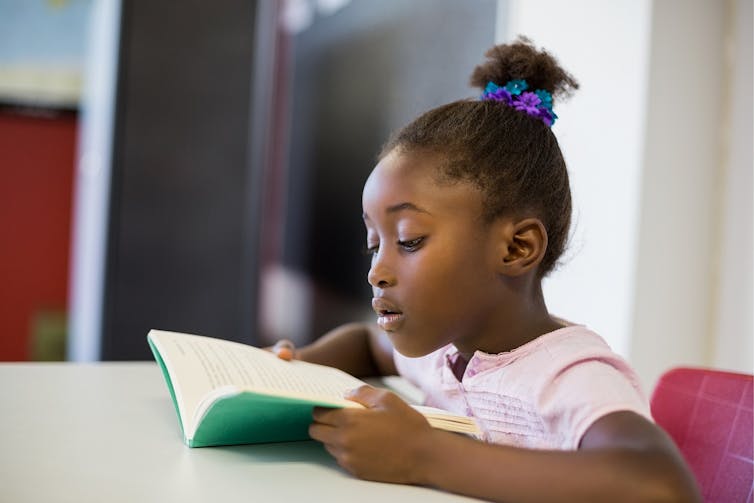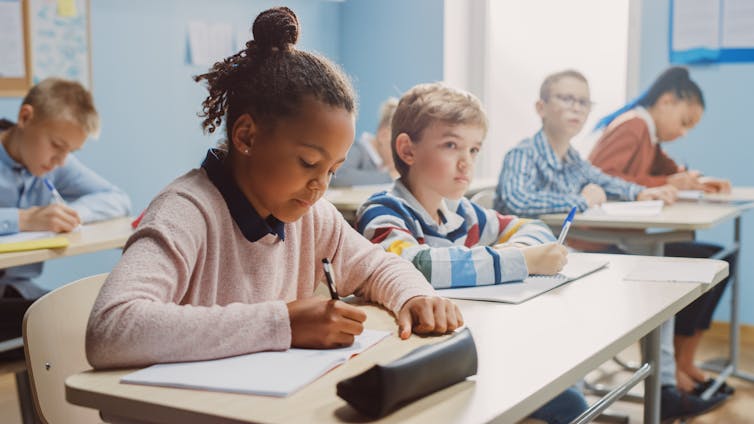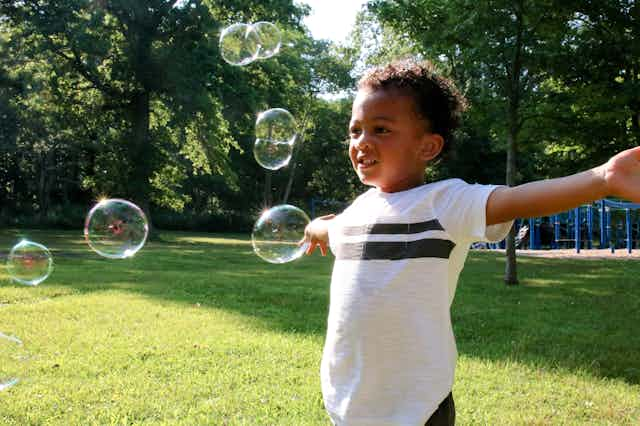Equity issues in education are in the spotlight as we envision what opening schools might look like in September.
Most recently, Ontario announced ending academic streaming in Grade 9 and eliminating suspensions in the early years from Kindergarten to Grade 3 — practices that disproportionately impact Black and Indigenous people and people of colour (BIPOC).
Read more: Ending ‘streaming’ is only the first step to dismantling systemic racism in Ontario schools
Coronavirus hasn’t caused the educational inequities that impact students. But it has shed light on how our most vulnerable communities are marginalized, silenced and oppressed systemically due to lack of access to opportunities perpetuated historically, socially, economically and politically via Canadian institutional policies and practices including by schooling.
For example, teachers and researchers have voiced concerns about the unequal impact of the virus on school closures. Students with access to supportive home environments or where parents enjoy financial security will find the challenges of the pandemic and at-home learning easier. Those with poor access to resources or considered to have special needs may find at-home learning not reflective of their learning needs.
Our research explores issues of equity and inclusion in Canada. We believe now is the time to address systemic inequities that existed long before the pandemic. Our task is to radically re-envision education as we plan alternate models for schooling.

We must reflect on recent critical events and teachable moments as we engage in dialogue and actions to better our lives and communities. We can do this via revised routines, processes, policies and practices to better reflect the needs of BIPOC, those from lower socio-enonomic backgrounds and people with exceptionalities.
Read more: What is solidarity? During coronavirus and always, it's more than 'we're all in this together'
Critical event No. 1: Social movements
Movements across Canada addressing anti-Black and anti-Indigenous racism are gaining more mainstream media coverage. BIPOC and white people in different sectors are speaking up and engaging in advocacy work to challenge policies and practices that privilege whiteness as a form of currency and simultaneously oppress non-dominant social groups.
There are persistent patterns of systemic oppressive practices that target BIPOC in their over-representation in school suspensions, applied streams, drop-out rates, homelessness, incarceration, poverty rates and in precarious employment.
It is important to constantly challenge deficit thinking in education, which blames students and parents for larger structural disadvantages. We need to recognize the role of existing inequitable institutional policies and practices in maintaining inequality of opportunity that predominantly disadvantages BIPOC.
Teachable moment: We must ask ourselves who gets access to certain opportunities, why and in what ways? Radical change goes beyond performative politics and tokenism and towards creating long-term sustainable plans. More leadership positions need to be created for BIPOC and more BIPOC educators hired at all levels. Part of this requires collection and public sharing of race-based data nationally as part of all institutions.
We must also invest in initiatives and school-community partnerships that create a safe and brave spaces where BIPOC cultural practices, lived experiences and ways of being, such as valuing oral culture and land-based education, are recognized as strengths and important cultural capital instead of treated as a superficial add-on.
We must invest in place-based learning where schools can adapt policies and practices to reflect the needs of their student demographics and surrounding community, or else we risk reproducing similar power dynamics that historically privilege whiteness at the expense of marginalizing others.
Critical event No. 2: Schooling disruptions
Schools were closed as of mid-March due to the coronavirus, resulting in learning disruptions that have included temporarily halting standardized testing for the next school year.
When learning shifted online, access to technology became a hot equity issue since not all students are able to access a computer or a high-speed internet connection to complete their work in a timely fashion.

Students, particularly those from marginalized communities such as families with limited financial means or students with exceptionalities, are in danger of being further marginalized.
Teachable moment: Principals and teachers are considering the needs of those most at risk before planning interventions, a basic tenet of Universal Design for Learning (UDL). Instead of thinking about technology as an “add on” to support student learning, educators are being challenged to use remote and online learning in a way that supports the learning of all students.
School boards are exploring creative ways to infuse technology into their pedagogy and become more comfortable with innovative technologies. The pandemic has compelled schools and institutions to invest in technological platforms to teach such as Google Hangouts and Zoom.
The pause on standardized testing and navigating students’ access to technology for remote learning provides opportunities to reflect on alternative education models with more focus on wrap-around student support initiatives and programming.
This is a chance to critically acknowledge how the rise of neoliberal politics and accountability regimes affiliated with outcome-based education have forced schools to focus on standardization and savings via budget cuts instead of creating opportunities and services to support the most vulnerable students.
Opportunities for new directions
As we transition to reconstruct education for a post-pandemic era, let’s reflect on the critical events of the 2019-20 school year and use them as teachable moments. Let’s work collectively and in action-oriented solidarity with each other, community partners and organizations to re-envision educational practices to serve the needs of our most vulnerable populations and communities particularly BIPOC, those from lower socio-economic backgrounds, and students with exceptionalities.
This year, 2020, will be one to remember. It has its share of challenges but also presents opportunities for new directions. Let’s all do our part to remove systemic barriers for teaching and learning as a community.
If at any time during reading this article you felt uncomfortable, angered or frustrated by what was stated, we encourage you to take a moment to reflect upon what contributed to such reactions and what perspectives, values and ideologies those feelings are rooted in. This is part of the challenge and emotional labour of unlearning.

